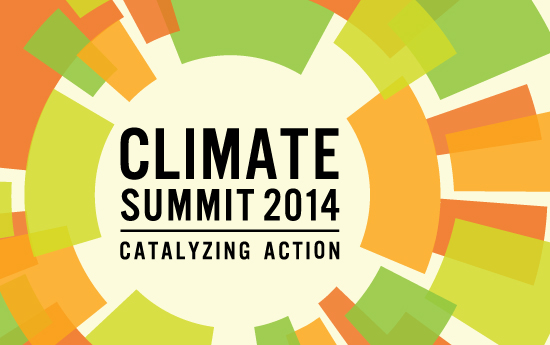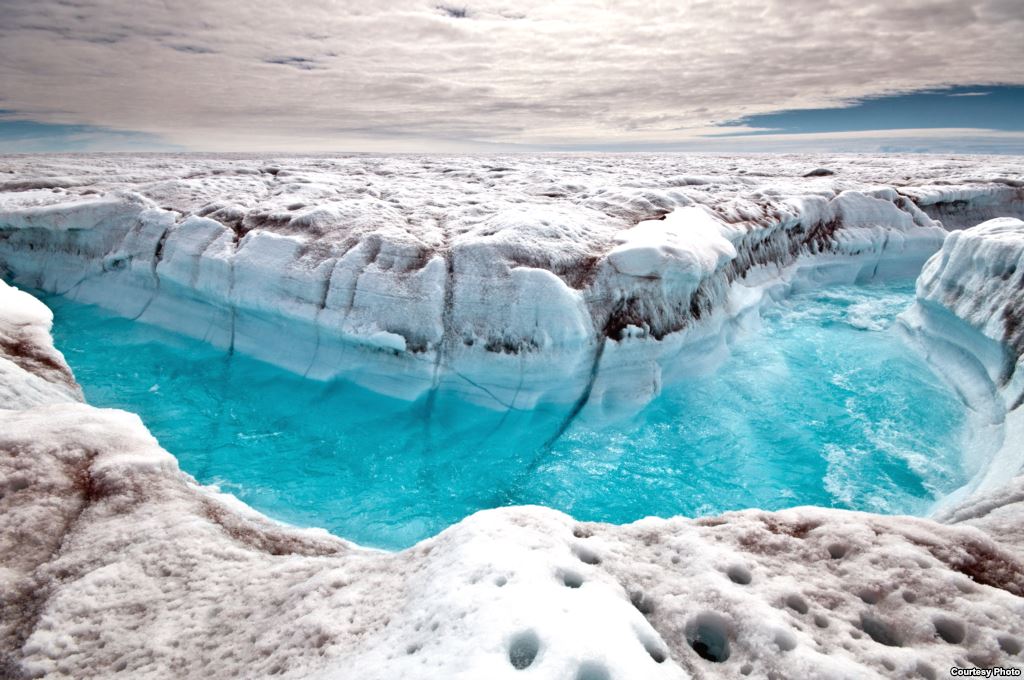Another inter-governmental conference on climate change is about to begin in New York. If you even knew about it, you belong to the shrinking minority of people who either still give a damn, or believe that the conference or the “People’s Climate March” on Sunday will make any real difference. But are these two ineffectual avenues our only alternatives?
 The website for “UN Climate Summit 2014” has a distinctly hollow look and feel to it. At the top it has this chuckler in small print: “Welcome to the United Nations. It’s your world.”
The website for “UN Climate Summit 2014” has a distinctly hollow look and feel to it. At the top it has this chuckler in small print: “Welcome to the United Nations. It’s your world.”
Yes, but it’s not our United Nations. The UN dances to the tune of the most powerful nation-states, which have turned it into a completely ineffective rump of the minimally effective rump organization it once was.
In an object lesson of wishful thinking, the UN Summit notice says, “There is a sense that change is in the air. UN Secretary-General Ban Ki-moon has invited world leaders, from government, finance, business, and civil society to Climate Summit 2014 this 23 September to galvanize and catalyze climate action.”
As Mark Bittman succinctly put it: “The U.N. Summit will be a clubby gathering of world leaders and their representatives who will try to figure out ways to reward polluters for pretending to fix a problem for which they’re responsible in the first place.”
But Bittman is sadly wrong when he says, “Despite the advance billing and the official nature of the summit, the march is what matters.”
The march doesn’t matter either. Even if it attracted ten million people, they would just be repeating what we all know but feel powerless to do anything about.
Such marches have come have the feeling of a carnival, a happening. Or of attending the funeral of a relative that once mattered to you but with whom you haven’t had a conversation in decades. There’s not just the sadness of the death; there’s the sadness of it being too late. But is it too late, as most people either openly or subconsciously believe?
It’s fair to ask, are such confabs as the UN Climate Change Summit designed to kill hope? They have been doing a good job of it. But then anyone still acting from hope these days is running on fumes. (What do you have when there is no hope but there is still life? The most dangerous thing of all—passionate people with nothing to lose.)
What most activists who still believe an adequate political response to the ecological crisis is still possible don’t understand is that the scale and all-inclusiveness of the challenge require radical change within as well as without.
The indispensably first change is not in governments or the global economic system, but in consciousness, beginning within each serious individual.
The connection between man’s destructiveness (not merely capitalism and industrialization) and human consciousness is now direct. Denial still rules however, not just with corporatists and politicians, but also with the intelligentsia and activists.
“If we are to have any hope of making the kind of civilization leap required of this fateful decade, we need a robust social movement,” intones Naomi Klein.
The hope that some latter-day anti-war movement will change the basic dynamic of man’s destructiveness is itself breeding hopelessness.
The same old oppositional, movement-oriented, march on this or that government, or for this or that cause won’t succeed in changing the basic dynamic anymore than the United Nations Climate Change Summit.
It sounds convincing to say that to be successful the climate movement must be a pro-democracy movement, but it isn’t so. Another movement won’t change anything.
For one thing, whether they attend the march or not, too many people have given up. For another, the era of social and political movements is over.
Most importantly, social and political movements are wholly inadequate to the challenge. In our completely interconnected age, they are neither necessary nor sufficient.
“We know how to combat climate change: Slow the burning of fossil fuels, speed up the development of alternative energy sources, and mandate that at least two-thirds of fossil fuel reserves be left in the ground. It’s simple, even straightforward and not even expensive,” Bittman correctly says.
But the fact that we know what to do yet aren’t doing it, despite the clear and present danger to present and future generations, attests to it not being simply a matter of political will; it attests to the depth of the challenge the self-made ecological crisis poses to the human psyche.
Most people still believe the problem is with ‘them’ and outside themselves—with corporations, governments and the capitalistic system. They are caught in the same mentality of externality as the unabashedly rapacious folks they decry.
Can radical change at the core of human consciousness, which means a psychological revolution, ignite now, and manifest almost simultaneously politically and economically? It has to if man is not to denude the earth. If you believe that can’t happen, you’ve quit on humanity, and are part of the problem. Please get out of the way.
This is the first time in human history that the spiritual, philosophical and political dimensions can go together. But we still have to be clear about what is first, second and third.
As someone who has put the cart before the horse myself, I understand the tendency to do so. The most difficult thing is to stick with first things first—changing oneself.
Radical change in a sufficient number of people (1%, at the right time?) can and will ignite a fundamental shift in consciousness as a whole. That plus holding The Question: Can the revolution in consciousness that changes the disastrous course of humankind ignite at this point in human history?
Martin LeFevre

